BULGARIA AUGUST 2022



Calculate the latitude of the place determining the height of the Sun at noon (experience 1) and, if possible, determine the altitude of the pole or the Polar star (experience 2) and record the results of each experience in the following Table of Results:
Teacher’s Name Mariana Filipova & Stoyanka Ivanova
School were taking place the experiment STEALM Academy
City and country Sofia, Bulgaria
Real Latitude 42°39'N
Day, month, hour=midday* 17 August, 13:30 Solar Declination +13 37 46
Latitude by the Sun – h1 60ᵒ
Day, month, hour=midday* 18 August, 12:05 Solar Declination +13 18 39 Latitude by the Sun – h2 58ᵒ
Day, month, hour= 18 August, 22:10 Latitude with the pole ** – h3 42ᵒ
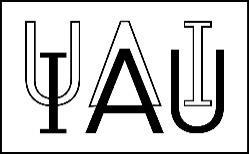

For 17 August, 13:30 (astronomical noon)
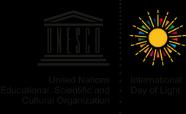
L1 = 90ᵒ h + D = 90ᵒ h + 13ᵒ 37’ = 103ᵒ 37’ 60ᵒ = 43ᵒ 37’
For 18 August, 12:05
L2 = 90ᵒ – h + D = 90ᵒ – h + 13ᵒ 18’ = 103ᵒ 18’ – 58ᵒ = 45ᵒ 18’
This table with the data and results, and 2 or 3 photos of the experiment, must be sent before September 23, 2022 to newsletter.nase@gmail.com








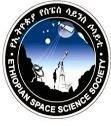





*You can only calculate the latitude with the Sun, when it is at the highest point of its diurnal trajectory, that is, at noon from the Sun. For this reason, the quadrant must be used when the sundial indicates 12 o'clock.
**The latitude with the pole can only be calculated if the polar zone is observed from our city, that is, if we are not in the tropical zone or close to it.

“Do not be satisfied with what life has to offer you, but make your life better by building something” Ashton Kutcher
Author’s volunteer project “In the footsteps of Magellan and Elcano”
It was a sunny and hot day at the end of August, when I met my classmates. I decided to invite them to attend some course, club, academy or some other activity. They said that it wasn’t interesting and necessary. Then I told them that they are going to miss a lot, because in this way they couldn`t learn something new, create new memories and do something good and useful for others.
“Remember to look up at the stars and not down at your feet. Try to make sense of what you see and wonder about what makes the universe exist. Be curious. Stephen Hawking
My first argument was that whatever classes we attend, the knowledge and skills we receive from there, expand our understanding of the world. In support this statement, I gave my classmates two examples. One of them was “AstroParty Baykal 2022” in which I, my friend Kalina and our team leader Assoc. D r. Arch. Stoyanka Ivanova took part in. There were many new and interesting things for us. Until this moment we weren’t able to tell the differences between an asteroid, a meteorite, a comet and the criterias of which dwarf planet Pluto was excluded from the official list of planets in 2006. We learned how to make a quadrant and sun clock,with which we measured the angular height of space objects. We were also lucky enough to watch waterfowl along the Danube River and to immerse in the history of the ancient city of Ulpia Eskus.
Then I continued my story with the one week Summer school “Prof. Marin Bachevarov” which was held for the first time in 2022.Theprogram of theschool consistedfrom interesting lectures of astronomical phenomena, the Universe, dark matter, exoplanets and the achievements of the new James Webb telescope. There were exercises about the processing of data from the TESS space telescope and for preparing a weather forecast. It was also interesting to follow the chemical composition of the Sun through its color spectrum. During the night until 2 o'clock we made observations of stars, meteors, constellations, galaxies, star clusters and two of the largest planets Jupiter and Saturn with their satellites. Then I learned how to operate a telescope and how to take astrophotography
The second thing I shared with my classmates was that we can contribute something to the world. I explained that if they join, for example, in some volunteer cause, they would not only learn something new, but also feel happy that they are in some help to other people
I told the children about a volunteer scientific trilingual project (English Spanish Bulgarian) that along with Kalie and with our teacher from STEALM Academy Mrs. Filipova realized during the summer. It was called “In the footsteps of Magellan and Elcano”. The goal was to introduce science trough experience to younger discoverers. That’s why in a zoo park we held a class with young children. We taught them how to use sun clock and quadrant alone as they work with map and compass. In addiction we even managed to inspire them by the environment itself because they love watching animals. At the end of the day, we were excited and pleased that we managed to motivate the kids to fell in love with science.
My friend and teammate Kalina Taleva wrote an introductory story in verse form with which we started every mission with the children:
Magallanes y Elcano soñadores y navegantes, iniciadores de la primera vuelta al mundo
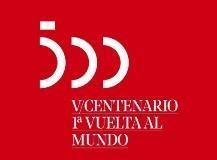

a la astronomia y las estrellas amantes, cambiaron la historia con un reloj de sol juntos.
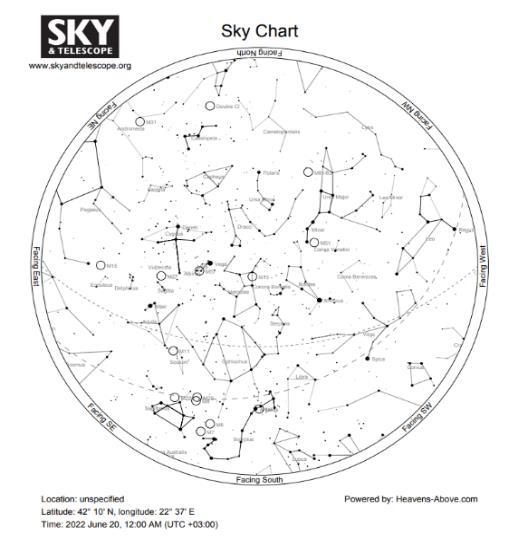
Aunque no en el océano, seguiendo а sus pasos, con reloj de sol en la mano, llegamos a la jaula de los monos con abrazos.




The last thing that I shared with my classmates were my precious memories, which I made this summer. Even now, as I write, I remember the clear night sky over the Osogovska Mountain which I will never forget. As soon as I saw this scenery, I had the feeling that the sky was about to touch the ground at any moment. It was covered with countless stars, connected in a huge constellations. I memorized at least 10 of them, as they reminded me of certain figures. For example, two of the constellations, Ursa Major and Ursa Minor, looked like frying pans, one of which was with curved handle. There, near the horizon, Cassiopeia sat beside her beloved Cepheus. Their appearance was so amazing that if somebody let his imagination run a little further, he would discover the message “My home”. I noticed Aquila too the bird, which was chasing Cygnus the North cross. Over my head were hanging three of the brightest stars Deneb, Altair and Vega. They were a wonderful trio called the Golden triangle. From time to timethePleiades meteors appeared as littlequick strokes.The sky is amagnificent starrytheater worth visiting a million more times. In conclusion, it is beneficial to study science because we can feel the joy from the created memories and do something good for ourselves and for the world. This can be achieved in many different ways from participating in courses, academies, competitions or volunteer causes to solving a major global problem. However, the most important thing is to just keep growing and moving forward, because as the ancient Chinese philosopher Confucius said “The person who doesn’t advance every day, falls behind every day.”
[3] StarmapovertheThreeBeechesHotel,OsogovskaMountain at 12:00 AM on 20 July, 2022.